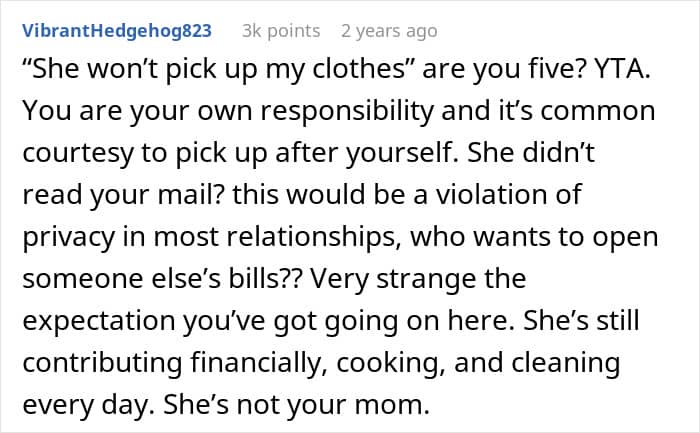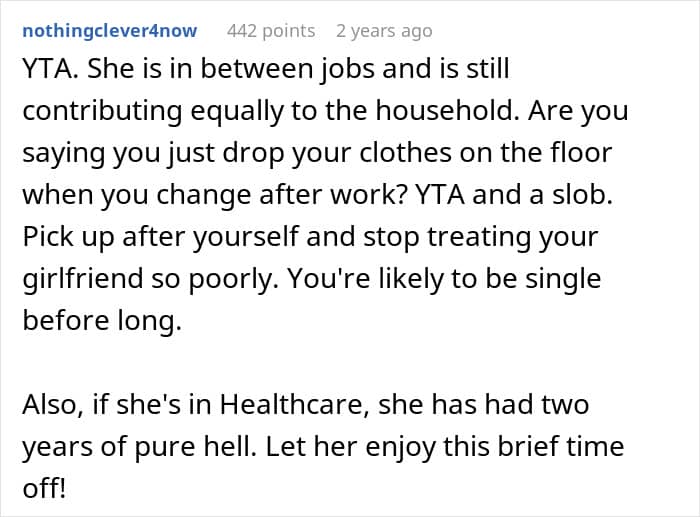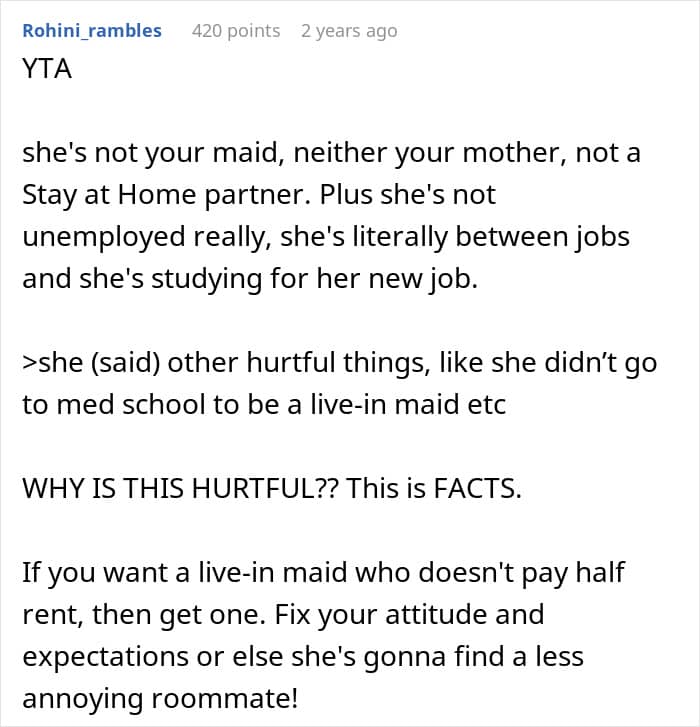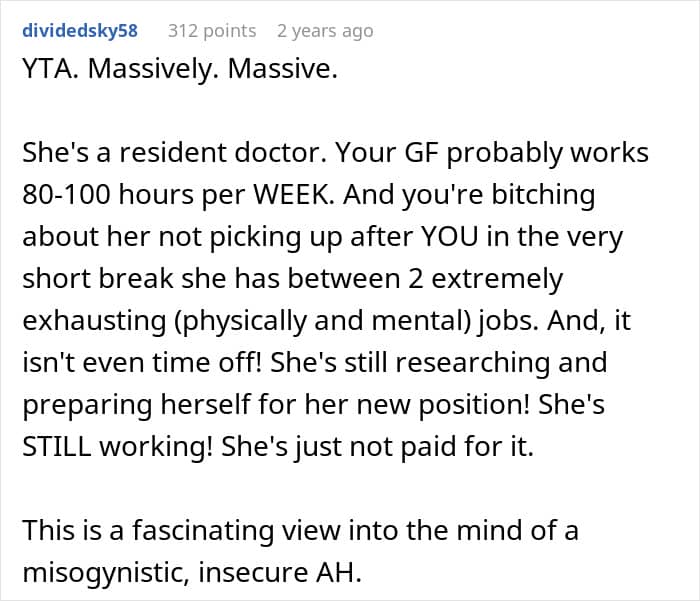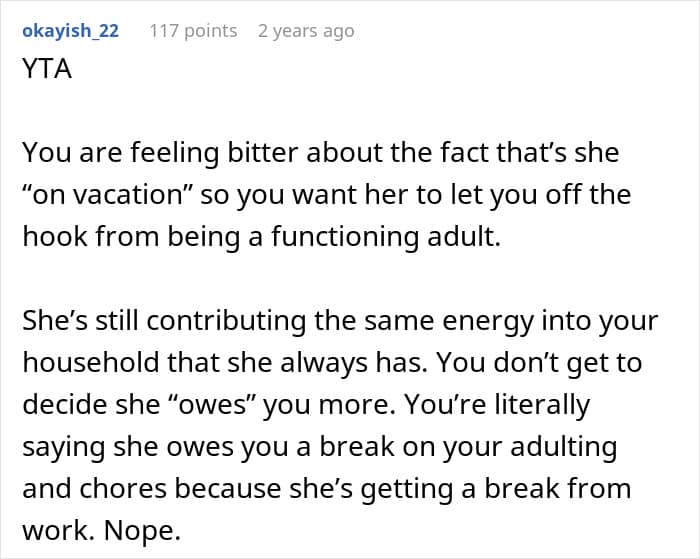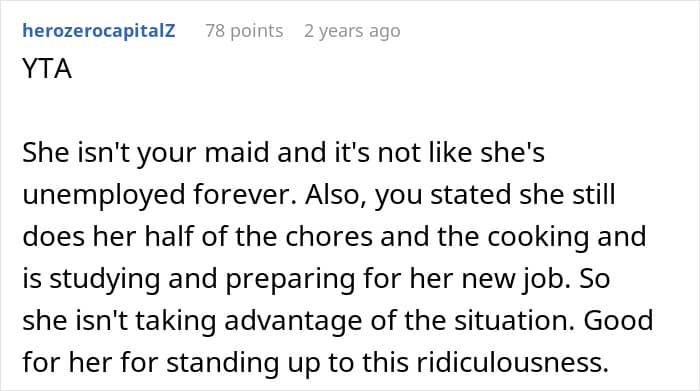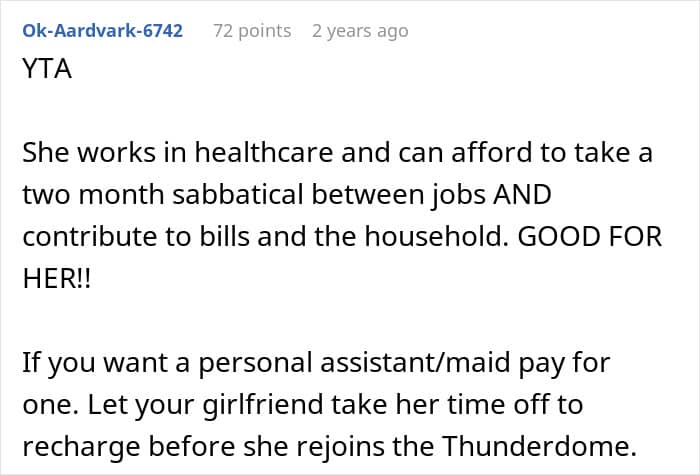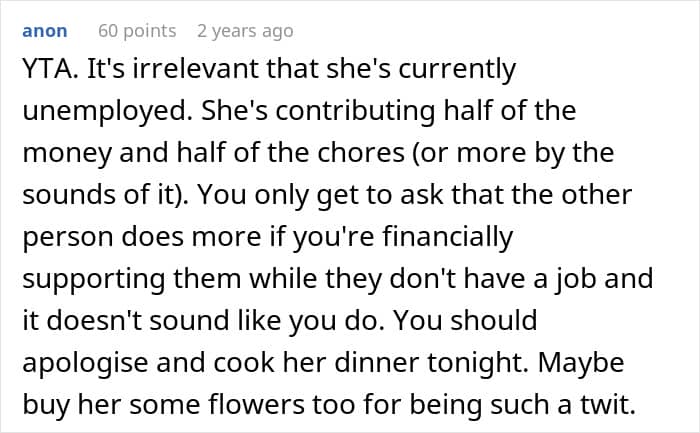Having certain expectations—especially unrealistic or unfair ones—can be seriously detrimental in a relationship. For example, expecting one partner to always cover the bill can lead to fights, as can expecting your significant other to do more around the house without having mutually agreed to it.
The latter is what happened to this redditor’s girlfriend. The netizen wanted her to take on a larger chunk of the chores now that she was unemployed and “living her best life”, but she didn’t think it was fair.
Seeking to delve deeper into the importance of sharing chores and other responsibilities, We discussed the topic with a clinical psychologist, author, TEDˣ speaker, and mental health advocate, Dr. Monica Vermani, who was kind enough to answer a few of our questions. Scroll down to find her thoughts in the text below.
Expecting your partner to clean up after you might lead to some troublesome situations
Image credits: 1footage / Envato (not the actual photo)
This man hoped that his girlfriend would do more chores now that she’s unemployed
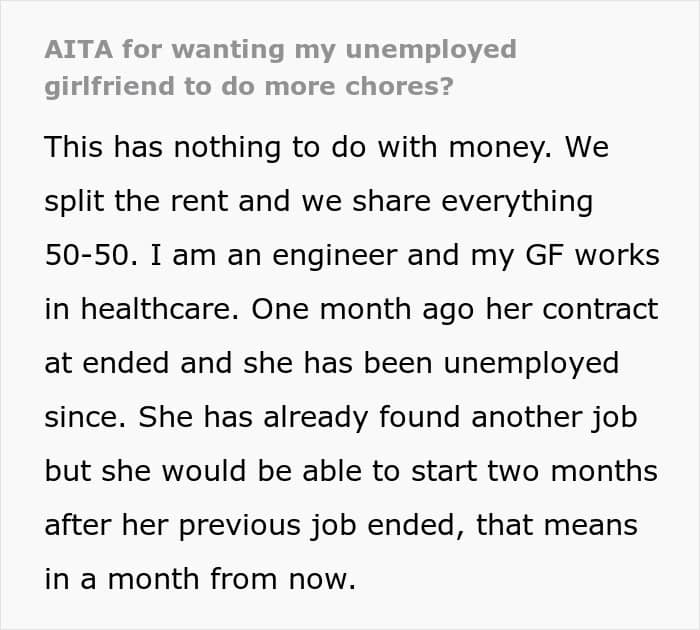

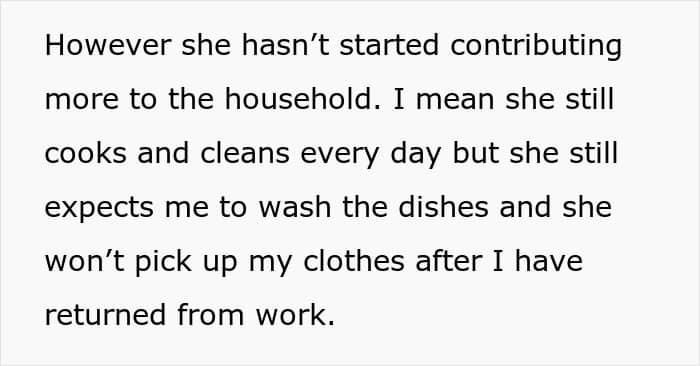

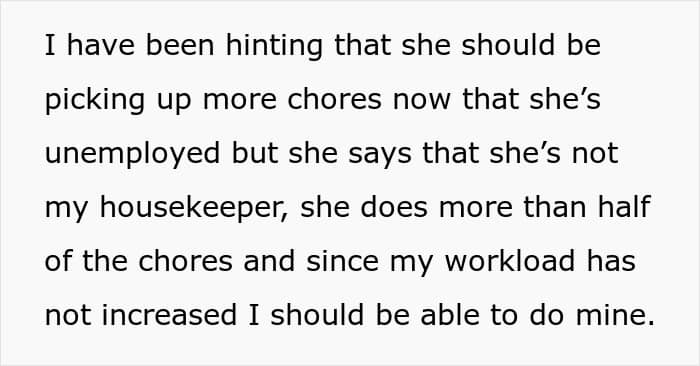
Image credits: nikolast1 / Envato (not the actual photo)
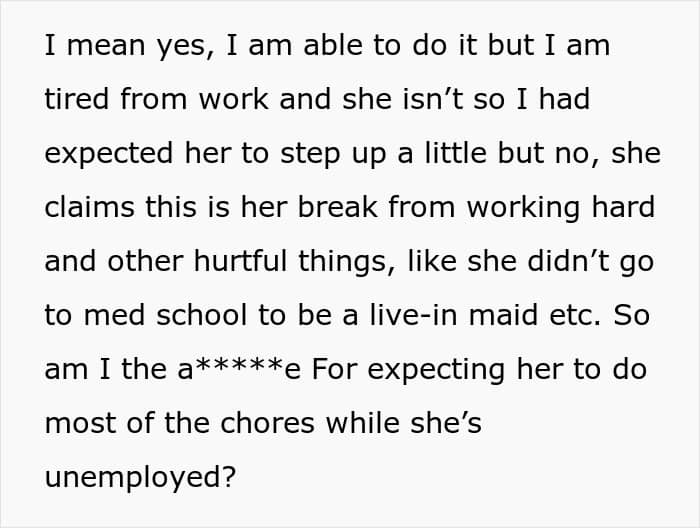
Image credits: Aggravating_Ad_7905
Chores are a subject many couples fight over
Image credits: MART PRODUCTION / Pexels (not the actual photo)
In a recent interview with We, Dr. Monica Vermani pointed out that when someone is transitioning from one job to another, they are often dealing with many emotions, including anxiety around change—whether the change is voluntary or involuntary. “In short, transitions can be tough,” she summed up. “A partner temporarily taking a break between jobs is not the time to take the opportunity to offload chores and rearrange household responsibilities; especially if that partner is already shouldering an unequal share of the household and family tasks and responsibilities.
“A healthy relationship involves having compassion for a partner when they are in transition. When an individual acts without compassion for their partner to lighten their own responsibilities, they can seriously damage trust and intimacy,” the expert added.
While certain responsibilities, such as financial matters or good old chores, are usually not the most romantic topics to discuss, they should definitely be talked about, as not dividing up the load can lead to misunderstandings, fights, or even resentment. As a matter of fact, money and chores are both among the five most common reasons couples—in the US, at least—fight, according to a YouGov survey. (The rest of the top five comprises a certain tone of voice, communication styles, and family relationships.)
Open communication can help navigate dividing chores easier
Image credits: Annushka Ahuja / Pexels (not the actual photo)
For couples struggling with dividing responsibilities at home, Dr. Vermani advised setting an intention together to share the burden of household chores as well as the mental load. “Together, come up with a plan that works. Then communicate concerns regularly,” she suggested.
“Just as we should aim to bring the best version of ourselves to our workplaces and social situations, we should also remain mindful of investing the same level of presence and intention in our relationship with our partner. Realize that just as there would be consequences if we were to sit back on the job while other people shouldered an unfair burden, there are real consequences of doing so in our relationship,” the expert pointed out. “Have regular conversations about what is and is not working. Talk about issues as they come up. Set an intention to keep your relationship healthy, and the lines of communication open.”
The clinical psychologist suggested that couples who find dividing responsibilities a difficult thing to do might benefit from scheduling biweekly meetings to talk about household chores and tasks. “In these meetings, share, negotiate, and reflect on what is working and what needs further attention and retooling.
“Together, troubleshoot, negotiate, and consider the possibility of bringing in extra help to ease the household burden. And while you’re at it, schedule in time for each other. Create the possibility for healthier conversations around household chores and responsibilities,” Dr. Vermani advised.
Some studies second the idea that eliminating chores from a couple’s life altogether can positively affect their relationship. Spending money, which is often dedicated to something more palpable when one wants to treat themselves, would result in buying time, which can be a game changer, as according to the researchers, “The more time-pressed you feel, the lower your well-being”.
Sharing certain tasks around the house is arguably what’s best for a couple’s relationship
But even if one of the partners had the time—as the OP’s girlfriend arguably did being unemployed—to take care of all the chores on their own, dividing them seems to be the better option.
“The number of equally shared tasks matters a great deal for both men’s and women’s relationship quality,” Daniel L. Carlson, Associate Professor at the Department of Family and Consumer Studies at University of Utah, wrote in a briefing paper prepared for the Council on Contemporary Families.
Carlson found that partners who took on specific chores separately weren’t as satisfied as those who shared at least three tasks and tackled them together. According to the researcher, for both men and women, the number of equally shared tasks was linked with a sense of their relationship being fair to both parties, as well as with satisfaction with their housework arrangement and their relationship overall.
Even though sharing the chores—or at least some of them—seems to be what’s best for couples, few of them take care of things around the house together. According to Gallup’s data, women continue to handle a bigger piece of the pie in regards to chores, which include such tasks as cleaning the home, doing laundry, and preparing meals. Men are, however, the ones to take care of such things as keeping the car in good condition and doing yard work more often.
Even though the OP’s girlfriend was already doing more than half of the chores in their home, too, the redditor believed she should have been doing even more as being unemployed, she arguably had the time for it. However, his opinion was not well-received by his girlfriend, nor was it well-received by the online community, which unanimously deemed the OP a jerk.
Fellow netizens unanimously agreed that the redditor was the jerk in the situation


